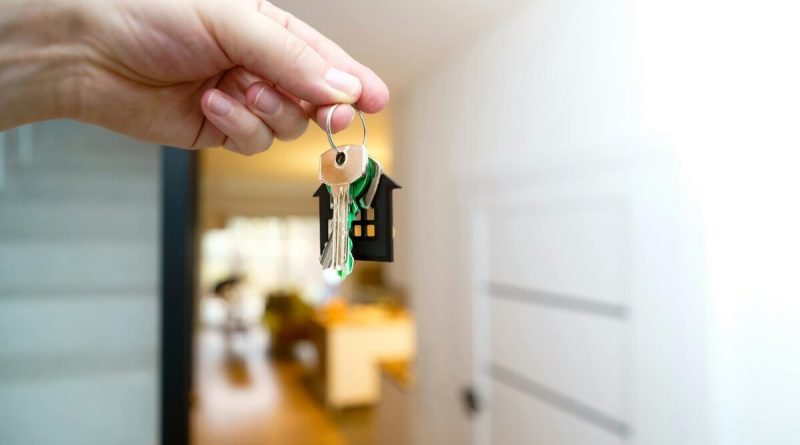Rent vs. Mortgage in 2025: Should You Rent or Buy a Home Right Now?
Deciding between renting and buying a home with a mortgage is one of the biggest financial choices people face. Both options have clear advantages and drawbacks, depending on your financial profile, lifestyle, and long-term goals.
This guide explores the pros and cons of renting and mortgages in 2025, analyzes real-world payment simulations, and discusses hidden costs, appreciation potential, and financial stability to help you make the best decision for your situation.
Renting vs. Owning: An Overview
Renting means paying a landlord to live in a property without ownership, while a mortgage allows you to borrow money from a bank to purchase a property, making payments until you own it outright.
Both choices affect:
- Monthly budget
- Long-term wealth-building
- Flexibility vs. stability
- Risk tolerance
Pros and Cons of Renting
✅ Advantages of Renting
- Flexibility: Easier to move for work, lifestyle, or personal reasons.
- No Maintenance Costs: Repairs and upkeep are usually covered by the landlord.
- Lower Upfront Costs: Security deposits are far less than down payments.
- Protection Against Market Risks: You’re not exposed to property value fluctuations.
❌ Disadvantages of Renting
- No Equity Building: Rent payments don’t contribute to ownership.
- Rent Increases: Landlords may raise rent annually.
- Limited Customization: You can’t renovate freely.
- Uncertainty: Lease renewals aren’t always guaranteed.
Pros and Cons of Mortgages
✅ Advantages of Buying with a Mortgage
- Equity Building: Payments contribute toward ownership.
- Appreciation Potential: Property values often rise over time.
- Fixed Payments: With a fixed-rate mortgage, monthly payments remain stable.
- Tax Benefits (in some countries): Mortgage interest may be deductible.
❌ Disadvantages of Mortgages
- High Upfront Costs: Down payment, closing fees, and insurance.
- Maintenance & Repairs: Homeowners are responsible for all upkeep.
- Reduced Flexibility: Selling a home can be slow and costly.
- Market Risk: Property value may drop, affecting resale value.
Financial Profile Considerations
When deciding between renting and owning, ask yourself:
- Income Stability: Do you have a steady job or business income?
- Savings: Can you afford a down payment (usually 10–20%)?
- Debt Load: Will mortgage payments strain your monthly budget?
- Future Plans: Do you plan to stay in the same city for at least 5–10 years?
Cost Simulation: Renting vs. Buying
Let’s compare renting and buying the same property valued at $250,000 in 2025.
Assumptions
- Rent: $1,500/month, annual increase of 3%
- Mortgage: 30-year loan at 6% interest, 20% down payment
- Property Taxes + Maintenance: $3,600/year combined
Table 1: Monthly Payments Comparison
| Option | Initial Monthly Cost | Additional Costs | Total Monthly Outflow |
|---|---|---|---|
| Rent | $1,500 | $0 (landlord covers) | $1,500 |
| Mortgage | $1,200 (principal + interest) | $300 (taxes + maintenance) | $1,500 |
At first glance, renting and mortgage payments seem similar, but the difference lies in equity building and long-term appreciation.
Table 2: 10-Year Financial Simulation
| Option | Total Paid (10 Years) | Ownership/Equity | Other Notes |
|---|---|---|---|
| Rent | $206,000 | $0 | Subject to rent increases |
| Mortgage | $180,000 (principal + interest + taxes) | ~$80,000 equity built | Property value may appreciate |
This simulation shows that while renting offers flexibility, buying builds long-term wealth.
Extra Costs to Consider
Renting Extra Costs
- Security deposit
- Moving fees (if relocating frequently)
- Renters’ insurance
Mortgage Extra Costs
- Closing fees (2–5% of home price)
- Homeowners’ insurance
- Property taxes
- Maintenance & repairs (avg. 1% of home value annually)
Market Appreciation and Risk
- Renting: You’re not affected by housing market ups and downs.
- Owning: If property value rises 3% annually, a $250,000 home could be worth $335,000 in 10 years. But if the market falls, equity can shrink.
Lifestyle and Stability
- Rent if: You value mobility, expect major life changes, or can’t commit to one location.
- Buy if: You want stability, plan to stay long-term, and have strong financial health.
Practical Decision Framework
Here’s a checklist to help decide:
- How long will you stay?
- < 5 years → Rent
- 7 years → Consider buying
- Do you have savings for a down payment and emergency fund?
- No → Rent until you build reserves
- Yes → Buying may be smarter
- Are you comfortable with maintenance responsibilities?
- No → Rent
- Yes → Buy
Conclusion
There is no universal answer to the rent vs. mortgage debate. Renting provides flexibility and lower responsibility, while a mortgage allows you to build wealth and stability.
The best choice depends on your financial profile, goals, and lifestyle preferences. In many cases, renting makes sense for those seeking short-term freedom, while buying is ideal for those ready for a long-term investment.
The key is to evaluate your time horizon, savings, income stability, and comfort with responsibility before making a decision.

